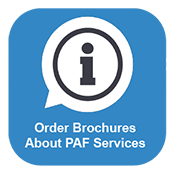Do You Need Supplemental Insurance?
Most of us know the importance of health insurance but many of us are not as familiar with supplemental insurance. Supplemental insurance does exactly what its namesake suggests; it is a supplement (or addition) to your standard insurance. Think about it this way; if the insurance exists, so does supplemental insurance.
As far as healthcare is concerned, the most common types of supplemental insurance includes vision, dental, critical illness and accident insurance. Although services covered vary from plan to plan, the majority of options tend to follow a fairly similar pattern. For example, supplemental vision insurance tends to include eye exams and glasses, where supplemental dental insurance can include services like teeth cleanings. Accidental insurance covers things like injuries experienced in a car accident, while critical illness insurance covers expenses caused by life-threatening diseases.
Below are some pros and cons for adding on a supplemental life insurance.
Pros
- If you have a serious illness, having supplemental insurance can help offset the costs and save you money in the long-run.
- Supplemental policies are a little more flexible in nature. For example, if you opt for an accident supplement policy, you’ll find things like housecleaning can be covered through your plan. Or if you choose to enroll in a chronic illness supplement plan, you might be covered from unreimbursed time off work. Every supplemental policy is different so become familiar with the plan language to know which policies you can take advantage of.
Cons
- They add a monthly expense to your budget.
- Supplemental insurance coverage plans have limits and you’ll probably have to exhaust your traditional insurance policies before tapping into your supplemental options.
If you decide to look into a life insurance policy, it is advisable that you have a life insurance professional do a needs analysis. By determining what your needs are presently and in the future, you’ll be better prepared to make decisions about whether supplemental insurance is right for you.










